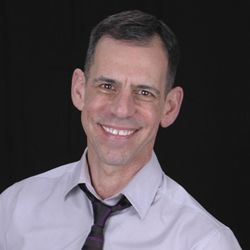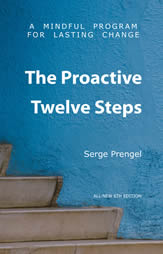Tuning Into Gravity
Gravity matters. Not simply to keep us physically grounded here on Earth, but, at a fundamental level, our relationship with gravity affects our lives from start to finish. We start life floating in amniotic fluids. It's easy to assume a sense of buoyancy, free from gravity's impact. Yet, gravity is necessary for our physiological development during the second half of our lives in the womb.
The Power of Stubborn
When do you get stubborn? With yourself? With others?
I notice that I feel stubborn when someone randomly gives me advice without my asking for it. It triggers a part of me that says, “Who do you think you are that you think you’re better than me.”
I grew up in a culture that put women down, a lot. Is that the cause of my trigger, of my stubbornness? I don’t know. I know I have an insecure part of me that can feel like I’m less than others, not good enough. I get to be a work in progress, always caring for that wounded part.
Human Baby, Human Being . . .
Matthew Appleton in conversation with Emma PalmerThe 8th and 9th of June 2019 will see the hosting of a fascinating two-day conference here in Bristol in England. The Human Baby, Human Being: Contributions from the emerging field of pre and perinatal psychology conference is being organised by Conscious Embodiment Training and ehealth Learning. An important aim of this landmark event is to bring together professionals interested in the long-term effects of prenatal and birth experiences.
The Body Sends a Message: Hungry for Health
In therapy, I believe our work is to support our clients as they and we enliven the places in imagination where we consciously and unconsciously create and cultivate visualizations vital for healing—specific images and sensations that are less apt to trigger distressing images but rather become integrated as components of recovery and healing. As we work within the psyche’s realm of awareness to re-envision scenes that support mental health and wellbeing, healing light becomes available when the darkness of harsher images from a terrifying past invades the mind and the body. Indeed, the recent tragic loss in Bev’s extended family had brought forth just such –a cascade of painful emotions, restless insomnia, anxious anhedonia, and a flare of her osteoarthritis.need for warmth and healing peace, Bev is learning how to confidently summon these images. However, for survivors of abuse like Bev, darker, more troubling pictures arise in the mind, unbidden and unwelcomed these images disturb their tranquility, knock them off balance.
Soul Mothers’ Wisdom
Bette J. Freedson, L.I.S.W., L.C.S.W., C.G.P, read from her new book, Soul Mothers' Wisdom: Seven Insights for the Single Mother, and discussed her writing process at the South Berwick Public Library last night (South Berwick, Maine).
Body Wise: Dreaming Bodies, Dreaming the Earth
It’s summer time and the living doesn’t feel easy. The nation approached the climax of the most uncreative election campaign I can remember, with Teresa May refusing to participate in election debates and Jeremy Corbyn participating as fully as he could in spite of the best efforts of many media channels to scupper his campaigning. There have been three ‘terror attacks’ in the UK in the past few months, the most recent on Saturday night, June 3, 2017, on London Bridge. Countless other attacks across the globe go largely unreported; no 24 hours news coverage and live BBC interviews for the families of the 68 children who died in a Syrian bomb attack in Idlib province in April.
Over Coming the Obstacles to Self-Compassion
To start, I think it’s useful to understand what compassion is and what it is not. My working definition of compassion represents tender, empathic, and caring sentiments. It involves loving feelings that emerge when an injury (physical, emotional, or spiritual) is recognized and nurtured. Compassion is bringing a concerned, reinforcing spirit in the presence of wounding.
Using the Original Tuning Board in Somatic Experiencing®
The Tuning Board is a somatic tool that addresses this problem of a non-resilient ability to return to a fluid vertical nervous system. It is increasingly known and used for this purpose in the SE community as well as among other somatic therapy practitioners. A unique balance board device, the Tuning Board gives the individual the task of relating to a comforting constant motion while the spine is in a state of vertical orientation.
The Mindfulness and Character Strengths Workbook
The Mindfulness and Character Strengths Workbook is everything I hoped for and more. It is a well-written, easy-to-follow, detailed to the nth degree workbook with extensive, free online materials to support the process including audio-guided meditations. Congratulations Ryan on a much-needed workbook to support people exploring character strengths and their integration with mindfulness.
Beyond Mars and Venus: Relationship Skills for Today’s Complex World
As society evolves, relationships do, too. It's time to toward a new relationship model for modern couples. In Beyond Mars and Venus, John teaches readers how to strengthen their bond and grow in love together for lasting happiness and a fulfilling relationship.














